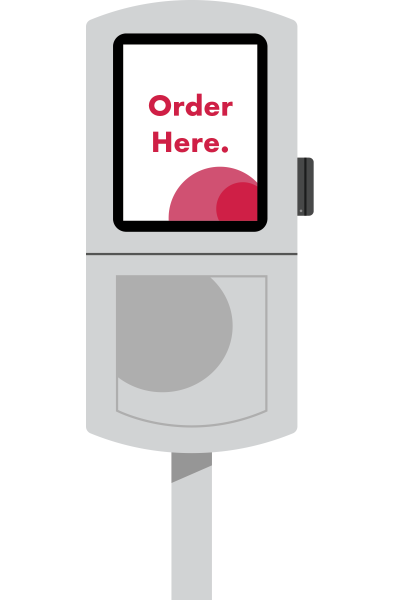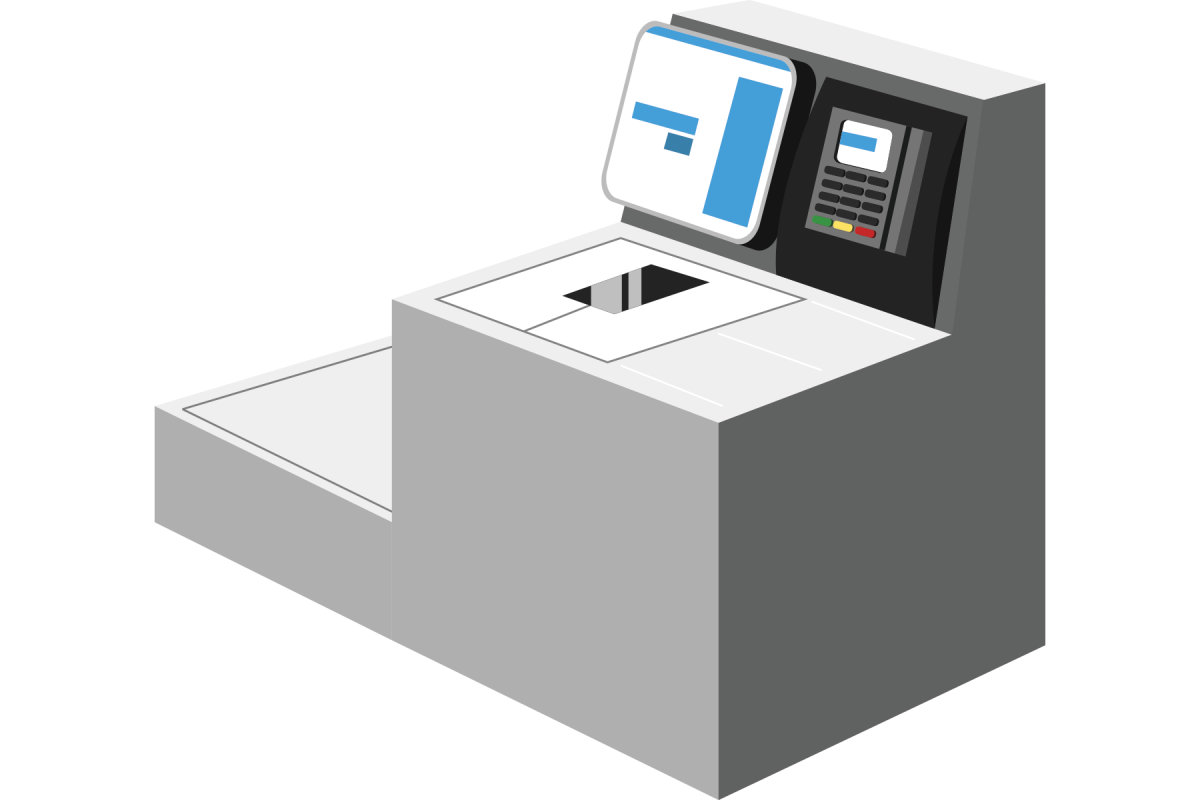When one thinks about the future of technology, comically inflated notions of flying cars, robot butlers and self-tying shoes might come to mind. These kinds of entertaining projections involving an advanced, Jetson-esque world were once widely accepted as outrageous exaggerations of a more realistic future society.
While once viewed as ridiculous, however, these fantastical caricatures of engineering ability are more attainable today than ever thought possible, thanks to technological achievement.
Despite these supposedly grand, imagination-defying accomplishments, in a world where inventions like digital media, conversational AI and digitized restaurants exist, society has felt increasingly dysfunctional. Unnecessary technological advancement is degrading not only the social foundations of human infrastructure but, in many ways, the human lifestyle itself.
It is a common assumption in highly industrialized societies that new technology correlates directly with personal benefit. Whether it be an app that delivers food to your door or a self-operating vacuum cleaner, it’s not hard for companies to sell the concept of reduced labor to customers. Who wouldn’t want their life to be easier?
The most foundational goal of technological development is convenience. People seize any opportunity to make processes faster and require less personal labor. This is why society, especially in wealthier countries like the U.S., invests unfathomable amounts of resources and energy into developing new technologies, both for commercial businesses and for the consumers who fuel them.
While perhaps counterintuitive, it is possible to have too much convenience. What is success without accomplishment and hard work? When life becomes extremely easy, one’s capacity for appreciation is diminished. Convenience plays a large role in personal perception. If life is efficient and convenient on a day-to-day basis, any kind of effort will seem more difficult than it actually is.
This isn’t to disparage new inventions altogether. Technological advancement at its core has endless possibilities and benefits, much of which have yet to even be discovered.
Inventions in the medical industry like radiation therapy and the 1974 MRI machine have helped save countless lives. Communication devices like portable phones and the internet have opened up whole avenues of opportunity for entertainment, information access and social connection.

It is also undeniable that many everyday appliances apart from life-saving medical machines have made human lives easier and more enjoyable, no matter how unnecessary they might be for basic survival. Toasters can be considered an objective luxury, but they sure make life a little bit brighter for those who enjoy toast. However, there is a line between actual development and invention for the sake of itself.
Technological development and modernization are two very different things, the latter often disguising as the former as an agent of overconsumption and corporate profit. This pernicious disguise strategy has produced and perpetuated harmful waste cycles where much is thrown away and little is kept. In addition to the wastefulness that modern technologies fuel, they’re downright pointless and even destructive.
In the early 2000s, technology production was progressing at a rapid rate. This was the era where the emergence of the smart home began to assume center stage in the mainstream technological market. Home automation promised the life of the future to the masses––the kind of self-operating households that only previously existed in the wildest imaginations of mid-century cartoonists.
Inventions like AI-powered smart assistants began to emerge in the mid 2010s with the first Amazon Alexa hitting the market in 2014. Devices like these were revolutionary to the previously AI-free household, harboring the ability to answer virtually any imaginable question, play any song or have any product ordered to a user’s doorstep at a simple verbal request.
Following the initial popularity of the smart home, products from every corner of the technological market were made over to function with some degree of automation. Today, devices like Wi-Fi-powered coffee machines and refrigerators with touch screens exist. If that doesn’t scream futuristic, then what does?
Nowadays, houses can have blinds that close on their own, lamps that turn on upon specific sound cues and even door locks that can be controlled virtually. Living has never had the potential to be so effortless. But why, exactly, is this such a good thing?
Devices today are studded with the glorified trappings of modernity: Wi-Fi, touch screens, voice control and more. The truth is, none of these additions make a kitchen appliance, home device or otherwise any more functional. It only makes corporations more money and provides consumers with a shallow illusion of efficiency.
In addition to manufactured products, everyday services have also become increasingly convenient in recent years. Exacerbated by the social distancing restrictions of the 2020 COVID-19 pandemic, food delivery services like DoorDash and Uber Eats came into high demand amongst the public.
This time period also contributed to the acceleration of other commercial non-contact institutions like self-checkout, same-day grocery delivery, digital service restaurants and mobile order drive-thru services.
These services may have been necessary for a society concerned with keeping COVID-19 mortality rates low, but even after countries cut back on social distancing restrictions and the pandemic was announced to be over, companies continued to ramp up the non-contact institutions.
These services make sense for people occupied with busy lives who might not have the time to spend an hour wandering the aisles of a grocery store, but the fact that they are no longer alternative options but rather complete replacements for the human services they were once meant to simulate is concerning.
Some people are just not comfortable around strangers, and that’s OK, but part of being a human is social interaction. Machines like self-checkout counters, digital kiosks and robot waiters are sterilizing the human socialization experience and alienating people from one another. It should not be normal to go through an entire day in public without having to directly interact with an unfamiliar person.
Not only are these machines distancing people from one another long after social distancing mandates were disbanded, but in many ways they’re counterproductive. Too often, it seems, are machines like cashier kiosks incapable of processing the intricacies of human needs. With limited ordering options and the incapability of understanding nuance, a customer might not be able to tell a touch screen exactly what kind of order they want without seeking human assistance.
Additionally, unlike humans, these machines are vulnerable to the unpredictability of Wi-Fi connection and supply and demand fluctuations. App State’s own experimentation with digital kiosks in food service places like Rivers Street Cafe and Crossroads has displayed signs of dysfunctionality with these machines frequently breaking down and requiring even more work from human employees to process orders.
Self-checkout machines have also proven to be counterproductive to companies in their own unique way. Lacking the watchful eyes of a human employee, it is much harder to crack down on shoplifting when customers are responsible for scanning and paying for their own groceries. Self-checkout theft is reported to be the leading cause of profit loss in 60% of retailers with $4.5 billion lost annually across all retailers due to the practice.
There are tons of additional problems in other areas of the newer technology sphere that deserve criticism too. There are few people nowadays who aren’t acquainted with generative AI programs and their disconcerting abilities to produce creative work similar to humans. These skills have serious implications for the spread of misinformation online and the production of original work in schools that society is already witnessing the effects of.
The same can be said for streaming services and their monopolization of the film industry. The technological landscape is transforming right before society’s very eyes, and too often it seems that these changes are not beneficial.
There is absolutely nothing wrong with hiring human employees. It allows for a level of relatability and comfort in a business for customers. Robots are completely impersonal and have no capacity for authentic interaction, and they take away jobs from real people. Estimates show that across industries, between 75 and 375 million workers globally may be out of jobs due to automation by 2030.
Just because something can be done doesn’t mean it should. In a world where modernization is worshiped, any technology can seem like progress, but replacing things that already work well is completely pointless and arguably foolish.
Why waste resources and take away human jobs when the same resources can be used for actual productive innovation?
Society needs a complete revolution of thought when it comes to technological development. Instead of prioritizing instant gratification through the internet and the consumption of new technology, learn to appreciate smaller, more trivial aspects of everyday existence. Derive happiness from experiences and opportunities, not convenience and material gain.
When people grow to prioritize the functionality of pre-existing products and institutions over the excitement of new things, real progress will be possible.


